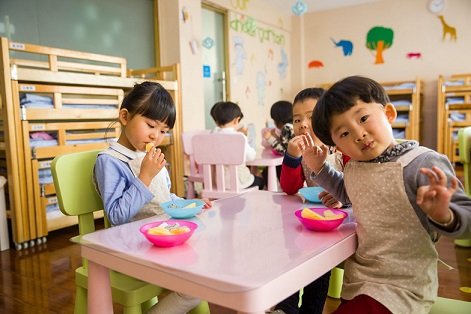In the realm of early childhood education, Montessori philosophy has emerged as a popular and effective approach. Parents seeking the best for their children often contemplate the choice of a daycare center that aligns with the principles of Montessori education.
Within this extensive guide, we will explore the myriad advantages of Montessori daycare and offer valuable perspectives on selecting the ideal one in your local area. Explore Beibei Amigos, a facility that fulfills all the requirements of a Montessori daycare.
Understanding Montessori Philosophy
The Core Principles of Montessori Education
Montessori education, developed by Dr. Maria Montessori, is founded on the belief that children learn best when given the freedom to explore their environment and learn at their own pace.
The core principles include fostering independence, self-discipline, and a love for learning. Montessori classrooms are designed to be child-centric, encouraging hands-on, experiential learning.
Why Montessori for Daycare?
Montessori daycare centers extend these principles into the early years of a child’s life, creating a nurturing environment that promotes holistic development.
Unlike traditional daycare settings, Montessori daycares focus on the individual needs and interests of each child, fostering a love for learning from a young age.
The Benefits of Montessori Daycare
1. Child-Centric Learning Environment
Montessori daycares are characterized by carefully curated environments that are tailored to stimulate a child’s curiosity and independence.
Learning materials are age-appropriate, and children are encouraged to choose activities that align with their interests, promoting a sense of ownership over their education.
2. Development of Independence and Responsibility
In a Montessori daycare, children are given opportunities to make choices and decisions independently. This not only boosts their confidence but also instills a sense of responsibility.
Practical life activities, such as self-care tasks and cleaning, are integrated into the daily routine, fostering essential life skills.
3. Individualized Learning Paths
Every child is unique, and Montessori daycares recognize and celebrate these differences. The curriculum is flexible, allowing children to progress at their own pace.
This individualized approach ensures that each child receives the attention and support they need to thrive academically and emotionally.
4. Social and Emotional Development
Montessori education places a strong emphasis on the development of social and emotional skills. Children in Montessori daycares learn to work collaboratively, resolve conflicts, and develop empathy.
The multi-age classrooms also provide opportunities for older children to mentor younger ones, creating a supportive community.
5. Love for Learning
One of the key outcomes of Montessori education is a genuine love for learning. By allowing children to explore topics that captivate their interest, Montessori daycares ignite a passion for acquiring knowledge.
This love for learning often becomes a lifelong trait that extends beyond the daycare years.
Choosing the Right Montessori Daycare in Your Vicinity
1. Research Local Options
Before making a decision, research Montessori daycares in your vicinity. Look for centers with a strong reputation, positive reviews from parents, and a commitment to Montessori principles.
Visiting the facilities and observing the classrooms can provide valuable insights into the environment and teaching methods.
2. Accreditation and Credentials
Ensure that the Montessori daycare you are considering is accredited by relevant educational bodies.
Montessori-trained teachers with recognized certifications play a crucial role in implementing the philosophy effectively. Check the credentials of the staff to guarantee a high standard of education and care.
3. Classroom Environment
Visit the classrooms and observe the learning materials and activities. A genuine Montessori environment should be orderly, inviting, and conducive to independent exploration.
Take note of the presence of mixed-age groups, a hallmark of Montessori education, promoting collaborative learning and mentorship.
4. Parental Involvement
A strong connection between parents and the daycare is vital for a child’s overall development. Inquire about the level of parental involvement encouraged by the daycare.
Regular communication, parent-teacher meetings, and involvement in your child’s learning journey contribute to a more holistic educational experience.
5. Philosophy Alignment
Ensure that the daycare’s philosophy aligns with your values and expectations for your child’s education. Discuss with the staff how they implement Montessori principles and how they address the individual needs of each child.
A shared understanding of educational goals fosters a collaborative relationship between parents and educators.
6. Safety and Cleanliness
The safety and cleanliness of the daycare facility are paramount. Ensure that the daycare meets all safety regulations and maintains a clean and hygienic environment.
Pay attention to the condition of learning materials and play areas to gauge the level of care and attention given to the well-being of the children.
Conclusion
In conclusion, choosing a Montessori daycare in your vicinity involves a thoughtful consideration of the benefits of Montessori education and a careful evaluation of local options.
The child-centric approach, emphasis on independence, and focus on individualized learning make Montessori daycares unique and effective in nurturing well-rounded individuals.
Unlocking the benefits of Montessori daycare requires a partnership between parents, educators, and the community.
By selecting a daycare that aligns with the core principles of Montessori education and meets your specific criteria, you set the stage for your child’s positive and enriching early learning experience.
As you embark on this journey, remember that the right Montessori daycare can unlock a world of opportunities for your child’s growth and development.

